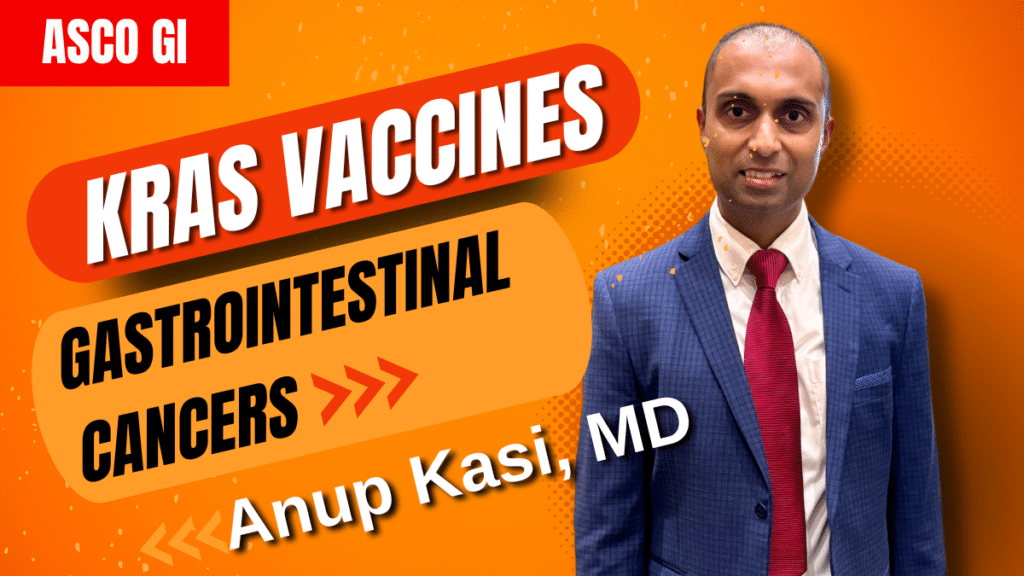Anup Kasi, MD, Associate Professor and Vice Chair of GI Oncology at the University of Kansas Medical Center, is propelling forward the battle against metastatic pancreatic cancer, shedding light on the transformative potential of targeted therapies. Among these, KRAS G12C inhibitors and protein degraders have emerged as crucial weapons in targeting the KRAS gene mutations, which are pivotal in the oncogenesis of not only pancreatic cancer but also colorectal and lung cancers. This marks a significant shift towards precision medicine, focusing on the molecular underpinnings of cancer.
KRAS Gene’s Role in Oncology
The KRAS gene, a member of the mammalian Ras gene family, has been identified as a central figure in the development of several human cancers, including pancreatic ductal adenocarcinoma, colorectal cancers, and lung adenocarcinoma. KRAS mutations, particularly the KRAS G12C mutation resulting from a single amino acid substitution, lead to an activating mutation that promotes uncontrolled cell growth through the activation of downstream signaling pathways. This has historically made KRAS one of the most frequently mutated oncogenes in cancer.
Targeting KRAS Across Various Cancers
The advent of KRAS inhibitors marks a new chapter in oncology, offering hope to patients with cancers harboring KRAS mutations. These therapies aim to inhibit the mutant KRAS proteins, effectively halting the aberrant growth of tumor cells. KRAS G12C inhibitors, for instance, have shown promising results in lung cancer patients, including those diagnosed with non-small cell lung cancer (NSCLC) and small cell lung cancer, by specifically disrupting the mutant KRAS protein’s downstream pathways.
The Promise of KRAS Vaccines
Parallel to the development of KRAS inhibitors, the innovation of KRAS vaccines opens a novel therapeutic avenue, particularly for pancreatic cancer. These vaccines are designed to elicit an immune response against cancer cells expressing KRAS mutations, thereby preventing the recurrence of cancer post-surgery. Clinical trials like those at Johns Hopkins and the Amplify trial are exploring the efficacy of these vaccines, showing early signs of success against KRAS mutant cells.
The Tesla Study: A Leap Forward
Dr. Kasi’s Tesla study represents a cutting-edge approach to leveraging the immune system to target KRAS mutations in resected pancreatic cancer. This clinical trial investigates a peptide-based vaccine, TG1, in combination with the PD1 inhibitor Belstilumab, for patients who are ctDNA, MRD positive, as identified by Signatera testing, and exhibit no evidence of disease post-chemotherapy and radiation.
Expanding the Impact of KRAS Targeting
The quest to target KRAS mutations extends beyond pancreatic cancer, impacting the treatment strategies for colorectal and lung cancers. The KRAS proto-oncogene, also known as the Kirsten rat sarcoma viral oncogene homolog, is a target in oncology due to its role in driving tumor cell growth and survival. The development of drugs and vaccines to target KRAS mutations opens new frontiers in the oncological battle against cancer.
The Future of KRAS Targeted Therapies
The potential of KRAS targeted therapies and vaccines to enhance survival rates for patients with KRAS mutations is immense. These approaches aim not only to extend life but also to improve the quality of life by offering more effective and potentially less toxic options than traditional chemotherapy. The utilization of ctDNA as a biomarker for minimal residual disease underscores the shift towards personalized cancer treatment, allowing for more tailored and effective postoperative strategies. “I’m hopeful that opportunities like this allow our patients to participate and hopefully derive benefit. So we still have to wait for these studies to be complete but I think these certainly help in giving patients, more chances to improve survival.” – Anup Kasi, MD – Associate Professor, Vice Chair of GI Oncology – University of Kansas Medical Center
Collaborative Efforts in Advancing KRAS Therapies
The collaborative efforts between researchers, pharmaceutical companies, and clinicians are crucial for the continued advancement of KRAS targeted therapies. Clinical trials, such as the Tesla study, play a vital role in validating the efficacy of new treatments and integrating them into standard care protocols. Engaging patients in these trials is essential for deepening our understanding of KRAS mutations and their role in cancer progression.
Conclusion
Investigations into KRAS mutations and the development of targeted therapies and vaccines represent a significant leap in oncology. These strategies provide hope for improving patient outcomes across several cancer types, including pancreatic cancer, colorectal cancer, and lung cancer. As research progresses and more clinical trials are conducted, the vision of a future where KRAS-driven cancers can be effectively managed or even cured is becoming increasingly realistic, heralding a new era in the fight against cancer.
